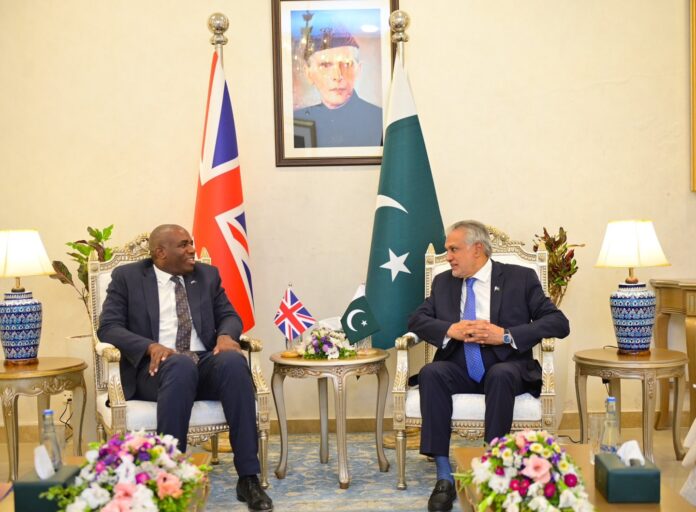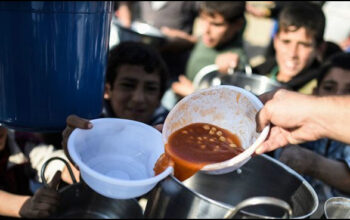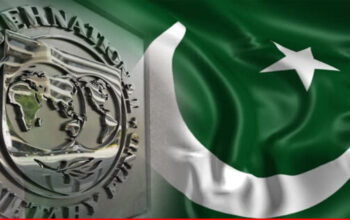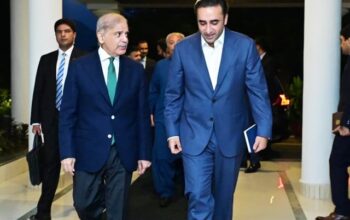By Staff Reporter
ISLAMABAD: UK Foreign Secretary David Lammy on Saturday pressed India and Pakistan to honour their commitments under the Indus Waters Treaty, a decades-old pact now at the centre of escalating tensions between the two nuclear-armed neighbours following a series of military clashes and a deepening dispute over Kashmir and water rights.
Speaking to Reuters at the close of a two-day visit to Islamabad, Lammy underscored the significance of the 1960 agreement, which governs the use of the Indus River system. “We would urge all sides to meet their treaty obligations,” he said, addressing India’s unilateral suspension of the treaty on April 23, a move that threatens Pakistan’s water supply and has heightened regional instability.
India’s decision to pause its participation in the treaty came as part of a broader set of measures against Pakistan, which New Delhi holds responsible for a deadly attack in occupied Kashmir’s Pahalgam that killed 26 people.
India has offered no evidence to support its allegations, while Pakistan has firmly rejected any involvement and proposed a neutral investigation into the incident.
The treaty’s suspension triggered a rapid deterioration in relations, culminating in a sharp military confrontation. On the night of May 6-7, India conducted air strikes in Punjab and Azad Kashmir, killing civilians.
Islamabad retaliated, downing five Indian jets and intercepting drones, followed by reciprocal strikes on each other’s airbases. The tit-for-tat escalation only subsided after urgent U.S. intervention secured a ceasefire on May 10. Pakistan has credited Britain, alongside the United States and other nations, with playing a key role in deescalating the violence.
The human cost of the recent flare-up has been steep. Pakistan reported that 13 security personnel, including members of the army and air force, were killed, with more than 75 injured. Civilian losses were even graver: 40 people, including seven women and 15 children, died, and 121 others were wounded during India’s strikes.
Lammy emphasised London’s commitment to sustaining that calm. “We will continue to work with the United States to ensure that we get an enduring ceasefire, to ensure that dialogue is happening and to work through with Pakistan and India how we can get to confidence and confidence-building measures between the two sides,” he told Reuters.
He acknowledged the strained history between the neighbors. “These are two neighbours with a long history, but they are two neighbours that have barely been able to speak to one other over this past period, and we want to ensure that we do not see further escalation and that the ceasefire endures.”
Lammy also vowed to deepen Britain’s partnership with Pakistan in tackling terrorism, calling it “a terrible blight on this country and its people, and of course on the region.”
Pakistan, meanwhile, has denounced India’s treaty suspension as a provocative act, warning that any effort to block or redirect its water share would be viewed as “an act of war.” Islamabad is gearing up for international legal action, bolstered by a recent report from the Pakistan Commission on Indus Waters that accuses New Delhi of widespread violations of the 1960 accord.
US Averted Nuclear War
Across the Atlantic, US President Donald Trump asserted that American diplomacy had staved off a catastrophic nuclear clash between India and Pakistan.
“The situation had escalated to the point where nuclear war could have broken out,” Trump said on Friday in an interview with Fox News. Describing the conflict as “tit-for-tat,” he warned that the next step could have been “the N-word,” confirming to the host that he meant nuclear. “That’s the worst thing that can happen,” he added.
Trump hailed the ceasefire as a triumph, calling it “a bigger success than I will ever be given credit for.” He credited his administration’s intervention for pulling “major nuclear powers” back from the brink, noting, “They were angry. It was getting deeper and more missiles.”
Beyond military de-escalation, Trump pointed to trade as a lever for peace. “I’m using trade to settle scores and make peace,” he said, citing “great conversations” with both nations’ leaders. He expressed enthusiasm for expanding commerce with Pakistan, saying, “They are brilliant people. They make amazing products. We don’t do much trading with them.”
On April 2, the U.S. slapped a 29 percent tariff on Pakistani exports as part of a broader levy on multiple countries, prompting Islamabad to seek ways to correct the trade imbalance. With India, Trump claimed progress toward a deal eliminating all tariffs on U.S. goods. “India was one of the highly tariffed nations, making it almost impossible to do business,” he said. “That deal will come soon.”
Earlier this week, Trump warned both countries that continued fighting would jeopardize trade with the US, later promising to “increase trade substantially with both of these great nations.” On Thursday, he reiterated that India had offered a no-tariff trade package for American products.
Copyright © 2021 Independent Pakistan | All rights reserved




